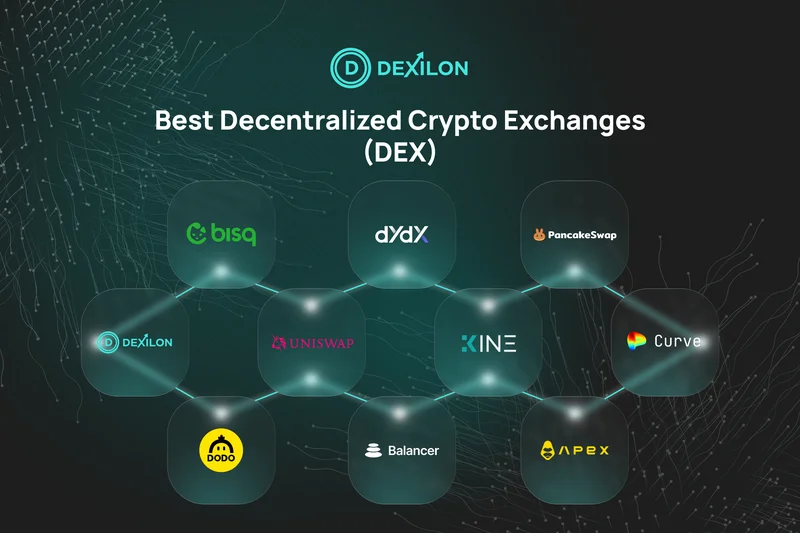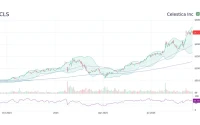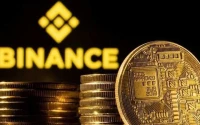The Great Decoupling: Why Binance's American Ghost Town is the Most Bullish Signal in Crypto
If you only read the headlines, you’d be forgiven for thinking we’re living in two different realities. In one, Binance.US, the American arm of the world’s crypto titan, is a ghost town. Its market share has collapsed to a rounding error, a paltry 0.20%. It’s desperately slashing fees to zero, trying to lure traders back into a silent, empty room. It’s a story of failure, of a giant brought low by the crushing weight of American regulation.
But then there’s the other reality. In this reality, Binance is on a global hiring spree, seeking over 300 new minds. Its rivals, like Coinbase and OKX, are recruiting by the hundreds, too, part of a massive industry-wide talent grab of over 1,600 open roles. In this reality, the company is looking at nations like Thailand not just as markets, but as future hubs for the entire Asia-Pacific region. Bitcoin and Ethereum are hitting new highs, and a crypto-friendly administration is rewriting the rules in Washington.
So, which reality is true? The answer, and this is the beautiful part, is both. And the friction between these two truths isn't a contradiction—it's the most powerful evidence we have that this technology is finally doing what it was always designed to do: decentralize. We aren't just watching a company navigate a crisis. We are witnessing the birth of a truly global, resilient, and borderless financial ecosystem.
The American Echo Chamber
Let’s not sugarcoat it: the situation at Binance.US has been a bloodbath. When the SEC came knocking in 2023, it didn't just file a lawsuit; it effectively severed the exchange's connection to the U.S. dollar system. For a crypto exchange, that’s like cutting the oxygen line. Market share plummeted from a respectable 10% to virtually nothing. Today, even after the lawsuit was dismissed and dollar access was restored, the lights are on but nobody's home. The trading volumes remain, in the clinical language of market analysts, "negligible."
The recent move to cut fees is a classic move for a company on the ropes. They’re slashing maker fees—in simpler terms, that’s the fee for adding orders to the books, for providing the liquidity that makes a market function—to zero. It’s an open invitation, a desperate plea to come back and turn the lights on.

But to see this as just the story of one company's failure is to miss the forest for the trees. What happened to Binance.US is a case study in the old world colliding with the new. It’s a lesson in what happens when a centralized, nation-state-based regulatory system tries to lasso a technology that is inherently global and decentralized. The U.S. government tried to put the genie back in the bottle, and in doing so, only managed to prove why the bottle was obsolete in the first place. The real story isn't what happened inside that American echo chamber. The real story is what happened everywhere else.
The Global Horizon
When I saw the data from Thailand laid out next to the Binance.US numbers, I honestly just sat back in my chair, stunned by the clarity of it all. Here, on the other side of the world, is a nation with a clear legal framework for digital assets. A place where crypto awareness is high and 2.83 million people already have digital asset accounts. Binance’s new head of Asia-Pacific, SB Seker, isn’t just paying lip service when he calls the country a potential hub; he’s stating an obvious truth, as the company has made clear that [Binance aims to turn Thailand into cryptocurrency hub]. Capital and innovation don't just disappear when they hit a wall—they flow around it.
This is the "Great Decoupling" in action. For years, the crypto conversation was dominated by the whims of U.S. regulators. But the ecosystem has grown up. It's no longer dependent on a single market for its survival or validation. It’s like the early days of the internet, when some countries tried to build their own closed-off national networks. Ultimately, the open, global protocol won because it was more resilient, more innovative, and fundamentally more useful. We're seeing the exact same dynamic play out in finance today.
And the hiring spree? This isn't just the industry feeling giddy about a bull market. This is the frantic, exhilarating sound of an entire ecosystem retooling for a new, globalized era. As detailed in recent reports, [Binance, Coinbase and Kraken lead a ‘massive ‘crypto hiring spree. Here’s where they’re recruiting]. Binance is hiring 303 people, Coinbase is adding 318, and OKX a staggering 440—this is the construction of a distributed, worldwide talent infrastructure for a new financial system, and the sheer velocity of this build-out means the gap between the old world of finance and the new is closing faster than we can possibly imagine.
Of course, with this incredible expansion comes immense responsibility. As we onboard the next billion users from every corner of the globe, the burden is on us—the builders, the investors, the educators—to ensure they are protected and empowered, not just exploited for liquidity. But what a phenomenal challenge to have. Are we watching the decline of one company’s American experiment, or the triumphant rise of a truly global industry? The answer seems clearer every day.
A System Correcting Itself
What we're seeing isn't a story about Binance. It's a story about a network's immune response. The attack on its U.S. operations was like a virus; the system responded by strengthening its other nodes in Thailand, across Europe, and in the global talent market. The American setback, in a strange and beautiful way, forced the industry to become more decentralized, more resilient, and more aligned with its core principles. The ghost town on Binance.US isn't a tombstone. It's a monument to an old way of thinking, a relic of a time when we believed borders could contain ideas. The future is being built elsewhere.









